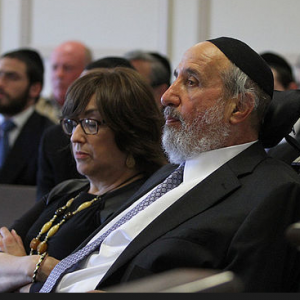 A few days ago, I noted an evolution happening with The Yard, the park planned for west of the new Vikings Stadium. In the 2018 Super Bowl bid put together by corporate leaders, images of The Yard were changed from depicting the public playground Minnesotans were initially pitched as part of Governor Dayton’s “People’s Stadium” vision into the more lucrative corporate playground the Vikings’ wealthy owners and their corporate partners covet for Super Bowl soirees.
A few days ago, I noted an evolution happening with The Yard, the park planned for west of the new Vikings Stadium. In the 2018 Super Bowl bid put together by corporate leaders, images of The Yard were changed from depicting the public playground Minnesotans were initially pitched as part of Governor Dayton’s “People’s Stadium” vision into the more lucrative corporate playground the Vikings’ wealthy owners and their corporate partners covet for Super Bowl soirees.
This weekend, a Star Tribune editorial bemoaned the Super Bowl bid committee’s proposal for The Yard:
“The public first glimpsed the Yard as depicted in Ryan’s initial renderings: a lush public expanse of grass and trees framing the city skyline. Even in winter, with snow on the evergreens and skaters on a pond, the Yard was to be the “money shot” that defined our city and state to viewers worldwide, as well as a bustling activity zone for fans on game days and for neighbors and downtown workers on the other 355 days of the year.
But a newer image adds tents of various sizes and exclusive activities for Vikings ticket holders for at least 10 days a year, plus events sponsored by the (Minnesota Sports Facilities Authority) MSFA on part of the park for as many as 40 additional days. During rare mega-events like the Super Bowl or the Final Four, garish tents could cover nearly the entire park space, largely to accommodate national security requirements.”
First, national security officials are obviously capable of securing a small public park on Super Sunday. Maybe skaters would have to walk through metal detectors. Maybe snow fences and security personnel would have to be temporarily used on the perimeter, as is frequently done on the much larger Mall in Washington, DC. Come on Star Tribune, are you really buying the Vikings’ claim that ice skaters are some kind of utterly unmanageable national security risk?
But it gets worse. The Star Tribune then explains that the de-parkification of The Yard goes well beyond Super Sunday.
The upshot is that, yes, the Yard still aims to be both active and attractive, but unfortunately with fewer trees and fewer permanent amenities (public art, fountains, cafes, etc.) than originally imagined, and with more open space for flexible programming, most of it public but some private.
While that doesn’t rule out public skating in winter or soccer and outdoor movies in summer, all of the setting-up and tearing-down of tents and platforms will damage grass and other natural features and, more than that, will consume beauty and time that the public had expected to get.”
So, let me get this straight. The Yard will be exactly like a park, except with few trees, gardens, water features, art or recreational-oriented equipment or structures. Other than lacking those typical park features, and being regularly shut down and ground to a pulp by corporate parties, The Yard will be exactly like all the best urban parks.
The Star Tribune, which will be relocated very close to the Yard, seemed disappointed to learn of the newly marred Yard. But ultimately the editorial staff did what it often does when powerful downtown interests are in play. It pretty much fell in line with the corporate viewpoint.
It’s nearly impossible to accomplish anything big — say, a Vikings stadium in downtown Minneapolis or an adjacent park — without the financial contributions and willing cooperation of various governments, private companies and nonprofit groups, all with competing interests. The result is often a compromise that doesn’t measure up to every expectation.
“Nearly impossible.” So that’s what we’ve come to. Public representatives can no longer create a public park that serves public needs, even after making a half a billion dollar public investment in the development of the area?
The next time you go to Lakewood Cemetery, take a copy of this “nearly impossible” editorial and lay it on the ground. That rumbling you feel is one Charles M. Loring rolling over in his grave.
– Loveland


